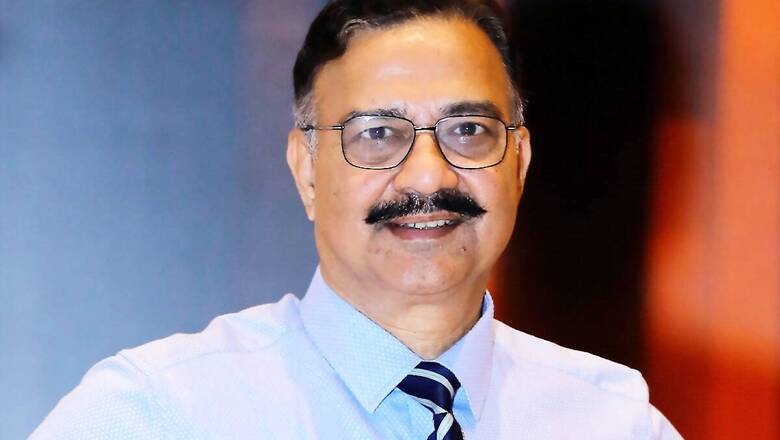
views
The growing volume of cyber attacks around the world, including increasing cyber criminal activity targeted at and within India, calls for nations to come together and frame cooperative policies to strengthen cyber security and resilience across the world, said Lt. Gen. (Dr.) Rajesh Pant, the first national cyber security coordinator of India. Speaking at private cyber security firm Kaspersky’s first ever online Asia-Pacific policy forum, Pant briefly touched upon the potential that international cooperation can bring to the realm of cyber security, before emphasising on the need for both individuals and companies to align to new strategies in order to strengthen the overall cyber security quotient of India. He also spoke about cyber resilience, stating that while India and other major nations have shown resilience against cyber threats in the recent past, the Covid-19-enforced new normal calls for adopting new policies, investments, resources and awareness to realise the full potential of our innate cyber resilience.
Pant was joined at the policy panel by Eugene Kaspersky, CEO of Kaspersky, David Koh, Singapore’s cyber security commissioner and CEO of Singapore’s Cyber Security Agency, and Mihoko Matsubara, chief cyber security strategy of Japan’s NTT Corp. Speaking at the panel, one of the key takeaways from Pant’s keynote was his highlighting of the need for international cooperation among major nations to establish a uniform cyber security policy, which can then be adopted and implemented by companies across various sectors. “Such a policy will not just help companies establish uniform practices, which will be particularly important in our new normal of the post-pandemic world, but also help increase awareness in many areas,” said Pant.
“In India, one of the key areas lie in the many thousands of new users that are coming online and using the internet for the first time. It is important to establish a ground level of awareness in these rural areas, so that cyber security awareness is spread far and wide particularly in the rural areas. Given the amount of data our country generates at the moment, protecting this data is key, and it is hence crucial for adopting strategies and policies to maximise the level of awareness of cyber crimes, both for individuals and companies alike. Increasing this awareness can be the first and foremost step towards improving our country’s cyber resilience,” Pant further added.
Not just rural areas
Joining in on the discussion, Singapore’s cyber security chief Koh added that the issue of cyber resilience in a world with increasing cyber crimes does not simply lie in rural areas. Koh said, “Singapore is a fairly cosmopolitan city, but even in an area like this, there is a lack of uniformity in the approach towards cyber security, which is one of the most important factors that need to be revised, looked into and established through formal policies and better awareness.” Koh further added that the sudden strike of the Covid-19 pandemic across the world has been a significant step back in establishing cyber security practices, since most individuals were forced into working from home at a time when they did not have adequate cyber security knowhow or equipment.
Koh stated that despite the work from home protocol establishing a “new normal” around the world, this can be considered as a moment for individuals and companies to become increasingly aware and increase their readiness in dealing with cyber threats, which in turn will benefit them more in a post-pandemic world. On this note, Koh also touched upon the increasing fragmentation of cyberspaces that have occurred as a result of the Covid-19 pandemic, which has also contributed to cyber criminals increasing the volume of crimes being undertaken in recent times. Reacting to this, India’s Pant stated that while the fragmentation of cyberspaces has indeed occurred, he expects to see closer global coordination reverse this effect as the toil of the pandemic begins to wear off.
Learning from the real world
Speaking on cyber resilience as an essential aspect, Eugene Kaspersky said that the best way to learn is by looking at the real world model of how we approach personal security. “When we think about how we want to keep ourselves, our belongings, wallets and all other possessions safe, it is important to note that we did not have to wait for the police or other authorities to come and teach us about it. For all of us, this is the ideal model from which we must learn and try to improve our ideas of cyber security,” Kaspersky added.
The panel concluded by stating that while cyber resilience is an existent entity in our present cyberspace, it will be crucial in the coming days, weeks and months to increase awareness among public. Furthermore, all major nations should agree on principle to set up common policies that helps govern the aspect of cyber securities, to wring out targeted cyber crimes and establish a stronger vigilance on protecting our digital assets – all of which can eventually lead to a far stronger and reinforced sense of cyber resilience across the world.













Comments
0 comment